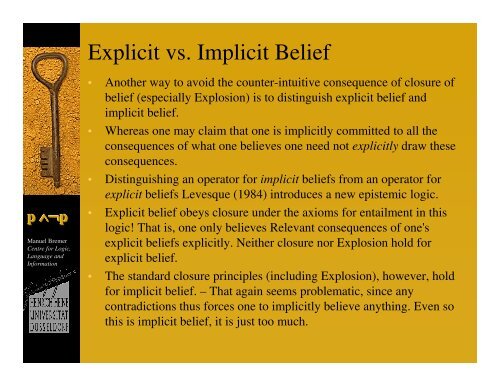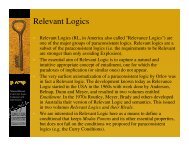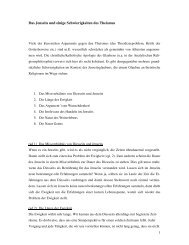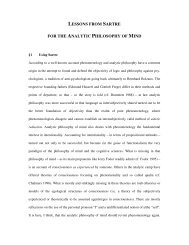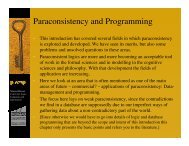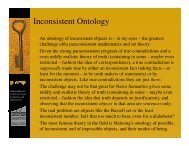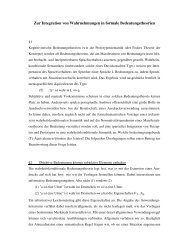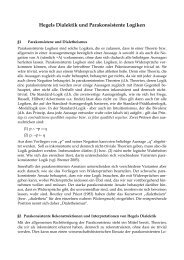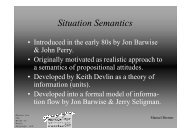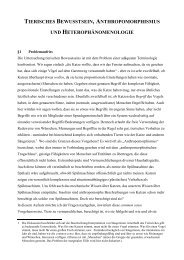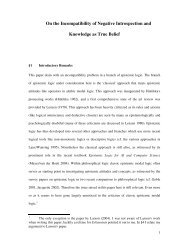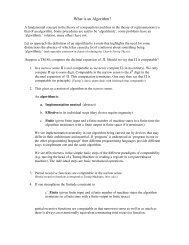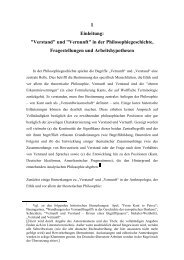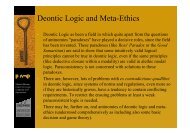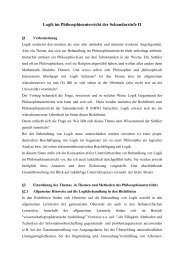Epistemology and Philosophy of Science - Bremer
Epistemology and Philosophy of Science - Bremer
Epistemology and Philosophy of Science - Bremer
You also want an ePaper? Increase the reach of your titles
YUMPU automatically turns print PDFs into web optimized ePapers that Google loves.
p ∧¬<br />
∧¬ ∧¬p ∧¬<br />
∧¬<br />
Manuel <strong>Bremer</strong><br />
Centre for Logic,<br />
Language <strong>and</strong><br />
Information<br />
Explicit vs. Implicit Belief<br />
• Another way to avoid the counter-intuitive consequence <strong>of</strong> closure <strong>of</strong><br />
belief (especially Explosion) is to distinguish explicit belief <strong>and</strong><br />
implicit belief.<br />
• Whereas one may claim that one is implicitly committed to all the<br />
consequences <strong>of</strong> what one believes one need not explicitly draw these<br />
consequences.<br />
• Distinguishing an operator for implicit beliefs from an operator for<br />
explicit beliefs Levesque (1984) introduces a new epistemic logic.<br />
• Explicit belief obeys closure under the axioms for entailment in this<br />
logic! That is, one only believes Relevant consequences <strong>of</strong> one's<br />
explicit beliefs explicitly. Neither closure nor Explosion hold for<br />
explicit belief.<br />
• The st<strong>and</strong>ard closure principles (including Explosion), however, hold<br />
for implicit belief. – That again seems problematic, since any<br />
contradictions thus forces one to implicitly believe anything. Even so<br />
this is implicit belief, it is just too much.


